Dakar
Copyright: Igor Grochev/ShutterstockDakar
The Cap-Vert Peninsula sticks out westward into the Atlantic Ocean, reaching from the Old World to the New, harbouring the westernmost city on the African mainland: Dakar. A city that represents Africa's development better than almost any other, Dakar boasts the comforts and luxuries of modern living, while firmly keeping a grasp on its history and traditions. The bustling markets of downtown are juxtaposed with the laid-back pace of Île de Gorée and the surrounding beaches, making a visit to Dakar a fascinating experience of contrasts.The City
For centuries, Dakar has been a vital hub, linking Africa, Europe, and the Americas. Initially significant for the Atlantic slave trade due to its strategic position, it continues to play a crucial role in trade, transport, and communication. The Cap-Vert peninsula, home to the city, was settled by the Lebu people, a subgroup of the Wolof ethnic group, no later than the 15th century. The original Lebou villages of Ouakam, Ngor, Yoff, and Hann remain distinct neighbourhoods within the city. The name 'Dakar' itself is derived from 'dakhar,' a Wolof word for the tamarind tree, reflecting the city's connection to its natural surroundings. Established by the French in 1857, Dakar has grown into a vibrant metropolis, boasting a mix of public buildings, embassies, and a bustling business district centred around the Place de l'Indépendance. The city's port area is a hub of activity, with industries ranging from peanut-oil refining to fish canning. Cultural institutions like the Grand National Theatre of Dakar, the Théodore Monod African Art Museum, and the Museum of Black Civilizations showcase the city's rich artistic and historical heritage. The corniche road around Cape Manuel offers stunning views of the harbour and nearby islands, while the new Blaise Diagne International Airport connects Dakar to the world. Dakar's rich cultural heritage, shaped by a complex colonial past, has fostered a unique social blend that combines European, North African, and West African influences, yet remains distinct. The city is flourishing, with a dynamic art scene, diverse cultures, and natural wonders nearby, inviting exploration. This cultural mosaic is evident in every aspect of city life, from art and architecture to cuisine and religious practices, with each quartier offering new discoveries.Do & See
Giant bronze statues, fantastic art museums, mosques, cathedrals and tons of fascinating history mean that you're sure to find plenty to do in Dakar. If you feel like exploring a bit further outside the city, attractions like the pink Lake Retba, the Tortoise Village, and the nearby car-free Gorée Island make for great day trips.
Dining
Senegal's cuisine reflects its multicultural population, blending North African, French and Portuguese influences with local ingredients and the culinary traditions of its varied ethnic groups. Fish, lamb, peas, peanuts, couscous and lentils are staples in Senegalese dishes. Don't miss the chance to savour refreshing juices made from fresh fruits like mango and soursop.
Cafés
Dakar's coffee culture has its quirks. While sipping at a tiny plastic cup of extra-sweetened coffee from a street vendor is a quintessential experience, the city's growing cosmopolitan vibe has ushered in a wave of Western-style cafés. These new spots offer a tranquil escape from the city's hustle, providing a perfect setting to enjoy a hot coffee, a quick snack, or a creamy dessert. Here are some recommendations for those seeking a peaceful coffee break in the Senegalese capital.
Bars & Nightlife
Dakar boasts some of the best, liveliest, and most varied nightlife in West Africa. Bars serve up cool, refreshing drinks, while nightclubs keep revellers dancing until dawn. The city's cultural scene is equally impressive, with a wide array of musical events, film screenings, and performances regularly taking place across the city.
Shopping
Dakar's shopping scene thrives in its vibrant and diverse markets, each bursting with colour and offering a wide range of goods. From fabrics to local produce, these markets cater to all sorts of needs. Haggling is a must for securing the best deals, but be cautious of pickpockets who may take advantage of the bustling atmosphere.

 Copyright: Pierre Laborde/shutterstock
Copyright: Pierre Laborde/shutterstock
 Copyright: wasiolka/shutterstock
Copyright: wasiolka/shutterstock
 Copyright: ORION13/shutterstock
Copyright: ORION13/shutterstock
 Copyright: Samba Ndaw/shutterstock
Copyright: Samba Ndaw/shutterstock
 Copyright: Nowaczyk/shutterstock
Copyright: Nowaczyk/shutterstock
 Copyright: Eric Haglund/cc by-sa 2.0/Flickr
Copyright: Eric Haglund/cc by-sa 2.0/Flickr
 Copyright: Oksana Ph/Shutterstock
Copyright: Oksana Ph/Shutterstock
 Copyright: rweisswald/Shutterstock
Copyright: rweisswald/Shutterstock
 Copyright: sinerji/Shutterstock
Copyright: sinerji/Shutterstock
 Copyright: Homo Cosmicos/Shutterstock
Copyright: Homo Cosmicos/Shutterstock
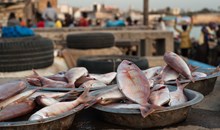 Copyright: Leonie Broekstra/Shutterstock
Copyright: Leonie Broekstra/Shutterstock
 Copyright: E. Diop/unsplash
Copyright: E. Diop/unsplash
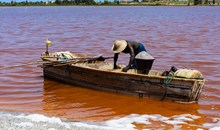 Copyright: Anton_Ivanov/Shutterstock
Copyright: Anton_Ivanov/Shutterstock
 Copyright: Erica Kowal (Zeusandhera)/cc by-sa 2.0/wikimedia
Copyright: Erica Kowal (Zeusandhera)/cc by-sa 2.0/wikimedia
 Copyright: Serigne diagne/cc by-sa 2.0/Flickr
Copyright: Serigne diagne/cc by-sa 2.0/Flickr
 Copyright: Salvador Aznar/shutterstock
Copyright: Salvador Aznar/shutterstock
 Copyright: Salvador Aznar/Shutterstock
Copyright: Salvador Aznar/Shutterstock
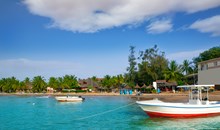 Copyright: holbox/Shutterstock
Copyright: holbox/Shutterstock
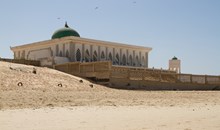 Copyright: antpun/Shutterstock
Copyright: antpun/Shutterstock
 Copyright: kuvona/Shutterstock
Copyright: kuvona/Shutterstock
 Copyright: f9photos/Shutterstock
Copyright: f9photos/Shutterstock
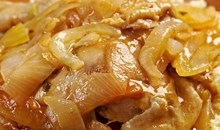 Copyright: Fanfo/Shutterstock
Copyright: Fanfo/Shutterstock
 Copyright: Andrey Bayda/Shutterstock
Copyright: Andrey Bayda/Shutterstock
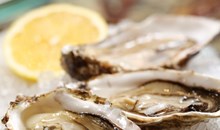 Copyright: Yeko Photo Studio/Shutterstock
Copyright: Yeko Photo Studio/Shutterstock
 Copyright: Insight Studio/Shutterstock
Copyright: Insight Studio/Shutterstock
 Copyright: Djibril Diallo/unsplash
Copyright: Djibril Diallo/unsplash
 Copyright: Jimi Filipovski/unsplash
Copyright: Jimi Filipovski/unsplash
 Copyright: Alexandra Lande/Shutterstock
Copyright: Alexandra Lande/Shutterstock
 Copyright: Sigmund/unsplash
Copyright: Sigmund/unsplash
 Copyright: Steidi/shutterstock
Copyright: Steidi/shutterstock
 Copyright: nd3000/Shutterstock
Copyright: nd3000/Shutterstock
 Copyright: Ollyy/Shutterstock
Copyright: Ollyy/Shutterstock
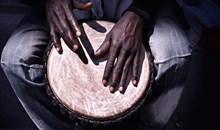 Copyright: Fresnel/Shutterstock
Copyright: Fresnel/Shutterstock
 Copyright: Fer Gregory/Shutterstock
Copyright: Fer Gregory/Shutterstock
 Copyright: Andrey_Kuzmin/Shutterstock
Copyright: Andrey_Kuzmin/Shutterstock
 Copyright: Anton Violin/Shutterstock
Copyright: Anton Violin/Shutterstock
 Copyright: i_am_zews/Shutterstock
Copyright: i_am_zews/Shutterstock
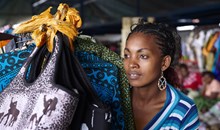 Copyright: Fresnel/Shutterstock
Copyright: Fresnel/Shutterstock
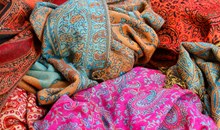 Copyright: ChiccoDodiFC/Shutterstock
Copyright: ChiccoDodiFC/Shutterstock
 Copyright: Pierre Laborde/shutterstock
Copyright: Pierre Laborde/shutterstock
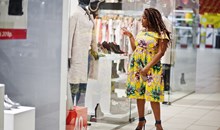 Copyright: AS photo studio/Shutterstock
Copyright: AS photo studio/Shutterstock
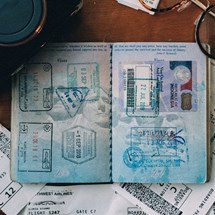 Copyright: ConvertKit/unsplash
Copyright: ConvertKit/unsplash
 Copyright: Vince Gx/unsplash
Copyright: Vince Gx/unsplash
 Copyright: Boulenger Xavier/shutterstock
Copyright: Boulenger Xavier/shutterstock
 Copyright: DiversityStudio/shutterstock
Copyright: DiversityStudio/shutterstock
 Copyright: Salvador Aznar/shutterstock
Copyright: Salvador Aznar/shutterstock
 Copyright: Simona Sergi/unsplash
Copyright: Simona Sergi/unsplash
 Copyright: Mika Baumeister/unsplash
Copyright: Mika Baumeister/unsplash
 Copyright: Wesley Hilario/unsplash
Copyright: Wesley Hilario/unsplash
 Copyright: Mika Baumeister/unsplash
Copyright: Mika Baumeister/unsplash
